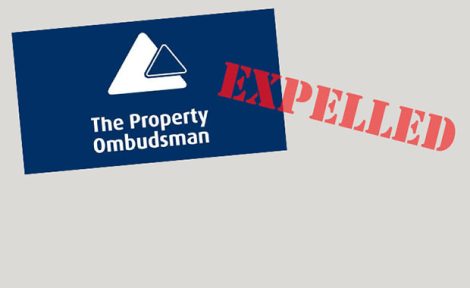Handling complaints
The Property Ombudsman, Chris Hamer, discusses handling complaints – the easy way.
 As The Property Ombudsman I see many complaints referred to me because the complainant feels, justifiably or not, that the agent has not understood or addressed their concerns in the manner they were expecting.
As The Property Ombudsman I see many complaints referred to me because the complainant feels, justifiably or not, that the agent has not understood or addressed their concerns in the manner they were expecting.

Sections 13 and 15 of the TPO Sales and Lettings Codes of Practice set out the in-house complaint procedure all registered firms are required to have in place. These rules are designed to enable agents to manage the complaint from the day it is received to the point it is either resolved or referred to my office. During my six years as Ombudsman, many agents have informed me of their success in resolving disputes early, without referral to me, by acting in accordance with the Codes of Practice. Indeed, approximately 88 per cent of the enquiries received go on to be dealt with by the agents themselves. However, I still see numerous cases where, had the agent dealt with the matter in the appropriate way, the complainant’s grievances would have been resolved at a much earlier stage and often without my intervention.
My Initial Enquires team is the first point of contact for potential complainants. Their role is to establish if and when a complaint has been made, if the complaint falls within my Terms of Reference and at what stage, if any, the complaint is within the registered firm’s in-house complaint process. However, much of Initial Enquiries’ work consists of guiding both complainants and registered firms through the agent’s own in-house process to assist the agent to resolve the dispute itself without the need for redress. Initial Enquiries deal with more than 600 enquiries a week, yet only around eight per cent go on to require a formal review. The large majority of disputes are resolved by agents following general guidance from the Team, or by the Team negotiating an early resolution between the parties.
However, there is a perception among some agents that when one of my Initial Enquiries Officers contacts them to advise that a complaint has been received and to establish at what stage it is in their in-house complaint process, that I have already begun to review the matter and that my support is with the complainant. This is not the case. I do not and cannot begin my review until the dispute has completed the in-house complaint process and the agent has issued their final viewpoint letter. It is at this point that the complainant may refer the matter to me for formal consideration. Once my Office has received the Complaints Form and supporting information, the agent is provided with a further opportunity to respond by issuing a submission letter and their file, before the case is allocated to one of my Case Officers. There are therefore numerous opportunities for the agent to resolve a dispute before it reaches the formal review stage.
Given the support and guidance offered by my Initial Enquiries team, I am still surprised by the number of disputes that proceed to review which had the potential to be resolved by the agent at a much earlier stage. Often the complainant feels aggravated that an agent has not afforded his grievances the credence he expected. Many cases show an all too familiar picture of a lack of regular communication and delayed responses which have served to further motivate a consumer to pursue his claims as far as possible. Sometimes it is apparent that the agent simply decided that the matter was not a complaint (in their view) or that the issue was too trivial for a response. In a few cases, instead of acknowledging and apologising for an error, the agent has sought to distract attention by raising counter arguments or by simply trying to cover up their error.
To be clear, a complaint is an expression of dissatisfaction, whether oral or written, and whether justified or not, from or on behalf of an eligible complainant about the provision of, or failure to provide a service.
In one recent case, the agent had correctly addressed the complainant’s concerns, admitting a failure on their part and offering a goodwill gesture of £100. However, despite the complainant writing back to formally accept the offer in resolution of the dispute and chasing a response thereafter, the agent failed to respond in any way or issue payment. Understandably, the complainant became aggravated further and referred the matter to me. My review reinstated the £100 offer but made a further and completely avoidable award for the additional inconvenience that the agent’s complaint handling failure had caused.
Regardless of whether an agent feels a complaint is justified, to fail to treat the consumer’s grievances seriously, and to respond promptly and directly, simply serves to aggravate the situation further. If an agent’s initial response does not resolve the matter, the complainant should be afforded the opportunity of a second review by a member of staff not connected with the transaction. If a resolution still remains unachievable then the agent should issue their final viewpoint letter and inform the complainant of their right to refer the dispute to my Office.
Sections 13 and 15 of the TPO Sales and Lettings Codes of Practice provide registered agents with the tools to resolve disputes themselves. If these tools are employed in conjunction with a philosophy of treating all complaints seriously, acknowledging and apologising where errors have occurred, responding promptly to all issues within the appropriate timescales and maintaining regular communication with the complainant, registered firms will find that they are able to resolve disputes themselves at an early stage, saving themselves time and avoiding TPO intervention.





